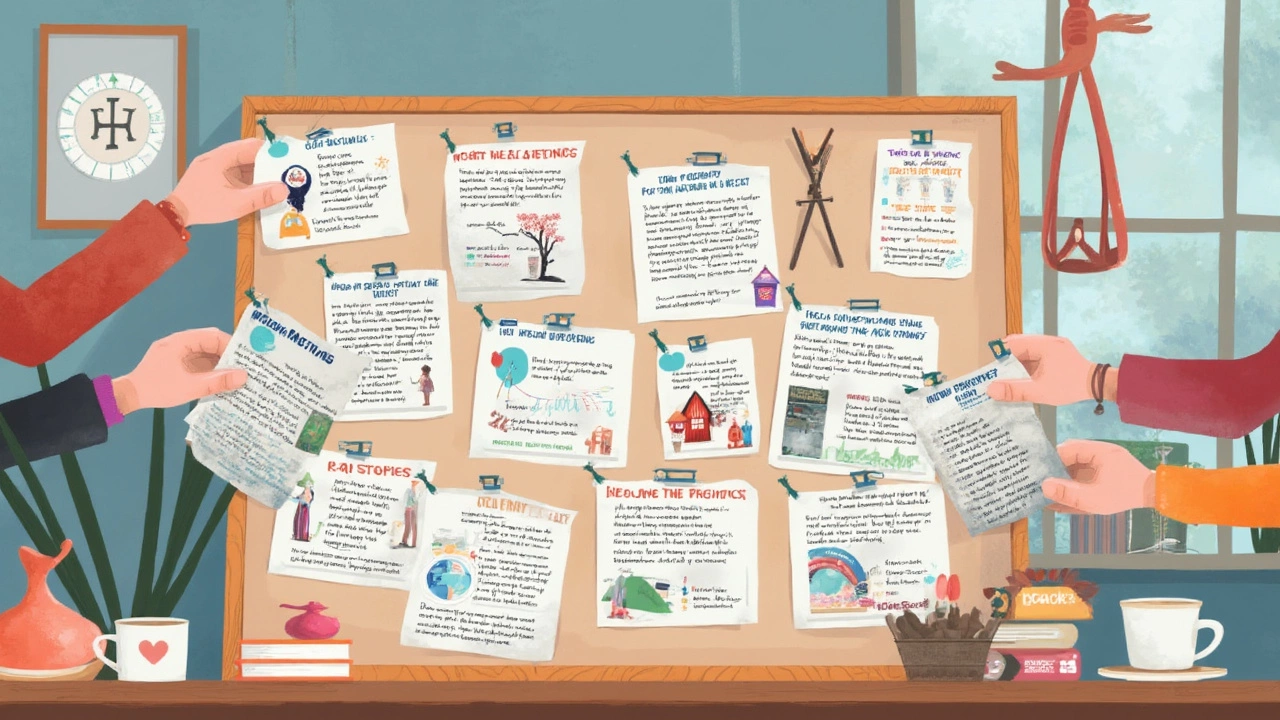Sex isn’t something you master in your teens and then put in a box for life. The truth? Most people only start to understand what truly works for them—physically and emotionally—years after their first roll under the covers. Shame, outdated advice, and plain old lack of info keep adults in the dark about everything from pleasure to protection. And it’s affecting everything from confidence in the bedroom to real connection in relationships. Learning about sex isn’t just an option as an adult—it’s a must if you value healthy relationships and your own well-being.
Why Adult Sex Education Is Non-Negotiable
Sex education in school was probably awkward, oversimplified, or, let’s be honest, forgettable. Most of us left with more questions than answers. But our bodies, needs, and relationships keep changing—and so does what we know about all this stuff. Being static just leaves you stuck repeating old patterns and missing out on what sexy, safe, and satisfying really mean now.
As adults, we face new realities: navigating long-term relationships, handling sexual health risks, and communicating wants and boundaries. Knowledge is not just about fancy positions or magazine tips—it’s about understanding consent, pleasure, dealing with changes as we age, and responding to personal and partner struggles. Take menopause or erectile dysfunction. Way too many think it’s all downhill or just embarrassing, but sexual enjoyment can evolve, not end, with the right advice and support.
Think about the impact of porn on expectations, or how certain cultural myths stick around even when science moves on—like the claim that there’s a normal number of times couples should be having sex. (Spoiler: there isn’t.) Or the myth that kinks mean there’s something wrong with you. Keeping up-to-date helps strip away shame and puts healthy, real information in its place.
Learning From Real People, Not Just Theory
There’s something powerful about talking openly with people who’ve seen it all, whether it’s a therapist, a partner, or even sex workers and London escorts who talk about everything from safety to pleasure in practical, non-judgmental ways. They often see firsthand what most people only whisper about at parties or never at all. Hearing personal stories can turn intimidating topics—like trying something new, dealing with mismatched libidos, or worries about performance—into challenges you know you can handle.
Podcasts, blogs, books, and workshops have popped up in the last decade with no filters and zero shame. There’s info out there on everything—from navigating non-monogamy to handling sexual trauma and embracing LGBTQ+ experiences. About 50% of adults in a UK YouGov poll admitted they’ve questioned if what turns them on is normal. That’s a huge number! Finding straightforward answers is how nerves turn into confidence, not anxiety.
Seek out safe spaces to ask questions you never could in school, and look specifically for sources that include real people and showcase a wide shelf of experiences. There’s a big difference between reading a clinical textbook and hearing how someone rebuilt their sex life after divorce or a health change.

Sexual Health: More Than Just Protection
Sexual health changes as you get older. You might have thought condoms and STIs were for the young, but rates of sexually transmitted infections are rising fastest among people over 45 in the UK. Many ended up back in the dating scene after divorce or bereavement, not realising rules have changed and a casual chat about sexual history isn’t optional anymore.
Learning how to have these sometimes-awkward conversations is crucial. There’s also the ever-evolving world of contraception – what worked ten years ago for your body might not be best now, and options change. It’s not just about preventing pregnancy; it covers everything from vaccines for HPV to PrEP for HIV prevention and updates on how to keep your sexual and reproductive health in check if you have a chronic illness.
A huge amount of people simply don’t know the updated facts. Did you know that certain forms of hormonal contraception may affect libido? Or that dryness during sex, often in menopause or after childbirth, can be solved with over-the-counter lubricants and doesn’t have to spell the end of pleasure? Keeping up means you don’t lose out or accept discomfort as normal. Here’s a quick snapshot of some realities facing British adults right now:
| Topic | Reality |
|---|---|
| Dialogue about History | 58% of singles say they rarely discuss STI status with new partners |
| Contraception Changes | 1 in 3 women over 35 switch contraception after age 30 |
| STI Risk | Rates of gonorrhoea and chlamydia doubled in 10 years among 45+ |
Knowing this stuff gives you power—knowledge isn’t just protection, it’s a ticket to being more relaxed and adventurous when you’ve removed some of the fear.
Communication and Consent: The Adult Version
‘No’ is just as sexy as ‘yes’ if you’re doing it right. But unless you’ve learned how to actually talk about sex—what feels good, what doesn’t, what’s on your no-go list—most of us muddle along with silent assumptions or worry about offending our partner. In school, consent is often taught as a ‘no means no’ script, but understanding the layers as an adult means you talk—and listen—way more than you probably thought.
If talking about sex makes you squirm, you’re not alone. In a recent survey, most couples admitted they skip the frank discussions, hoping issues sort themselves out. But needs can get missed, resentment builds, and intimacy withers.
One key tip: frame feedback and wishes positively. Instead of “You never do X,” try “I love it when you…” or “I was thinking we could…”—starts conversation, not confrontation. Revise your rulebook regularly. When life gets hectic, kids or work stress, what you want may change for both of you. Checking in (“How are you feeling about things lately?”) keeps that connection alive and encourages a sense of safety.
And there's no shame in asking, “How do you like this?” or suggesting something new. Actually, sharing fantasies can pull couples closer, not drive them apart, even if you decide not to act on it. It’s about honesty, not pressure. Real sex education for adults should dive deep into communication, because that’s where trust and fun live.

Staying Curious: Where to Go From Here
Staying curious about sex as an adult isn’t about ticking boxes, it’s about keeping things connected, confident, and even surprising. Follow pleasure researchers, sign up for workshops, or join online forums about whatever interests you. Sex therapists regularly suggest playful homework: try new things, read or listen to something spicy with your partner, or just talk without an agenda about what feels good or weird.
Resist the urge to compare yourself to others. ‘Normal’ is a moving target. Couples who talk openly about sex, regularly try new things, and laugh when things go sideways (because let’s face it, sometimes they do) rate their relationships happier, not perfect. If you’re single, this stuff matters just as much. Learning about what makes you feel good—physically, mentally—puts you in a stronger place for when you meet someone new.
The best part? There’s no deadline, and there’s always a new angle to explore. Try out educational resources by professionals, and don’t shy away from learning directly from people who work in the field—folks like sex workers often share wisdom about boundaries, pleasure, and empathy that textbooks leave out.
If you’ve ever thought your sex life could use a little spark, it’s not about a fix—it’s about growth. Sex education is lifelong because life changes, and you do too. Keep learning, keep talking, and you’ll be way ahead of the curve.
